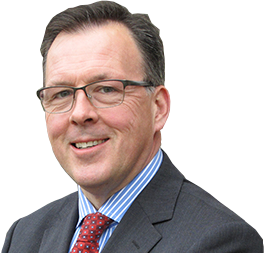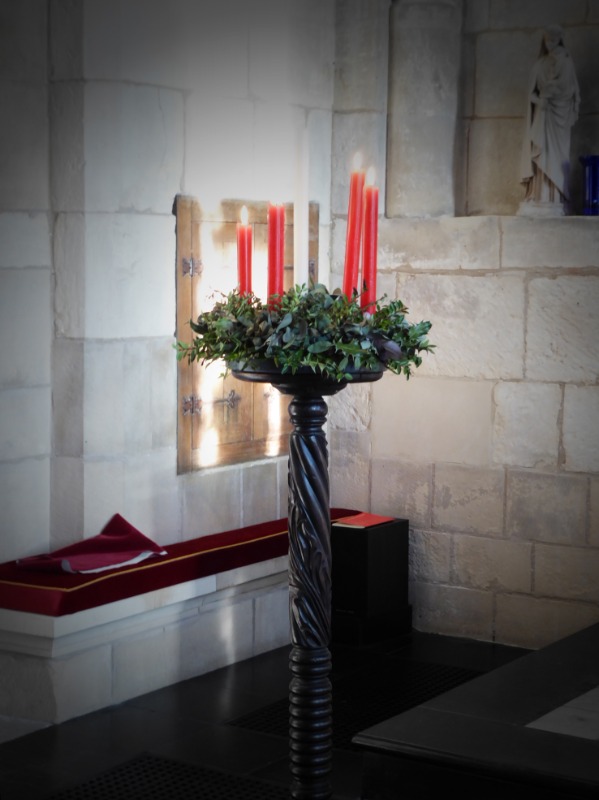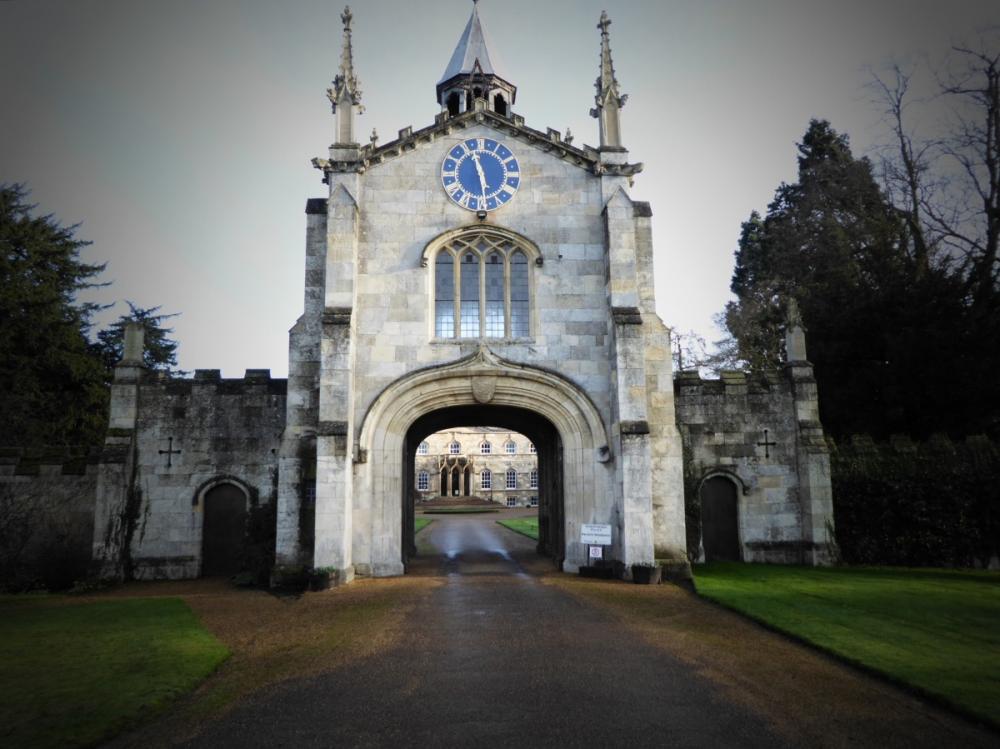search
date/time
 | Lancashire Times A Voice of the Free Press |

Andrew Palmer
Group Editor
5:06 AM 24th December 2020
frontpage
Interview - Archbishop Of York: Not Bad For A Spurs Fan!


He has a love and affection for Yorkshire, two of his children were born here, and he finds his new job “a great honour, slightly terrifying but also a joy to be inhabiting this amazing historic role, living in this astonishing place”
We are meeting under strict Covid 19 rules in the beautiful Bishopthorpe Palace chapel with the four Advent candles lit.
"It has been good for us to rediscover those basic things and it will be fascinating to see where they lead.”
And connections seem to be the thread for this interview, important to Stephen Cottrell, whose inauguration was the first to held online and was streamed on Facebook, YouTube and on the Church of England’s website on Thursday 9 July.

Acknowledging the pain and suffering that many have been through during this pandemic, Stephen Cottrell is pragmatic, “there’s no point in pretending otherwise, the year has been difficult and there is nothing good about Covid 19, but that doesn’t mean good can’t come out of it.”
This is where the connection theme becomes relevant. “I think, for the Church of England, and probably for all the churches, one of the good things to come out of it, is that we have discovered new ways of communicating, new ways of building community, that is true of all other organisations as well, but for us it has been quite astonishing.
“I was at a church only last Sunday, a little village church in the northern part of the diocese of York and the congregations have quadrupled this year, but they are new communities online.”

“We need to nurture these new online communities. Of course, we need to find ways for them to meet physically as well, but it might not be the same as it has been in the past. So, I think that for the Church of England it has been a digital coming of age.
"We have learnt a lot and we are going to have to carry on learning what might these new communities - these new ways of gathering together - mean for us? And the second thing, and there are only two things, is service.”
The Church is adapting and “the incredible service that the Church of England offers - despite all the challenges we face - nevertheless, we still have a presence in virtually every community in this land, and even if that is a very little presence, we have made a big impact.”
Service and community are important, and the Archbishop talks about a church that set up a food bank, literally outside the front of church with some trestle tables on the pavement, providing much needed resources for beleaguered people practically on the first day of lockdown back in March.

Worship and Music
As a former editor of Cathedral Music, and an organist. I want to understand how new ways of delivering worship and liturgy will work.
Once again, he is realistic in understanding the needs of the different communities within the Church that all need to come together and evolve.
“I don’t think it is necessarily going to change in the way that we stop doing one thing and do something else instead. I like to think of the change in a phrase that is used a lot; a ‘mixed ecology’. A mixed ecology of community, a mixed ecology of worship.”
Drawing on his wide experience, serving as Canon Pastor at Peterborough Cathedral, worshipping regularly at Chelmsford Cathedral, and at York Minster he chats about music and liturgy.
“Oh! How we miss the music this year. I remember, just a month or two ago, the first time the York Minster Choir were singing again, what a joy it was to be there to hear the organ playing, to hear the choir sing. That isn’t going to stop or go away. In fact, he emphatically states, “It is a hugely precious part of English church life.
“Years ago, I was giving a talk on mission in Leipzig. In the evening, on one of the days of the conference, we went to the Thomaskirche, which was where Bach was the Kapellmeister and organist. A service of sung Evening prayer took place in the Lutheran tradition, as it might have been in Bach’s day. It was wonderful and I was one of a handful of English people at the conference. And, as we poured out of the church afterwards, most of the German Christians were mainly saying to each other phrases like ‘it was a once in a lifetime experience’.
“After they had used this phrase for the tenth time, I cautiously interjected, to say that what for them was a once in a lifetime experience happened every single day in every English Cathedral. You could turn up at York Minster or Chelmsford Cathedral on a wet Tuesday evening in November, with a handful of people in the congregation to hear the most sublime music.
"Perhaps one of the failings of the church in the past has been that it has been a bit too clerical or a bit too professionalised."
“I mean it is astonishing and beautiful and precious, distinctively English. There’s almost nowhere else in the world where this tradition has been carried on. We are not going to lose that. Well not on my watch anyway. We are going to do everything we can to uphold that tradition, but I think that at the same time this is a great opportunity to build new traditions as well.”
I feel he is looking forward to fully getting stuck into the role as he does not hide his enthusiasm and finds it “enormously exciting.”
So, what about the future?
“If you ask me to say what will this mean for the C of E over the next ten years … I don’t know … but it is a time of great creativity and experimentation and some things will fall by the wayside, they will not work, other things will flourish. But I think we are going to see a major greater diversity and variety of meeting and worshipping, some in person some online and I hope all of it will be beautiful.
“There is a parish I know where the priest is an accomplished musician and he has been putting together (during) Advent meditations combining words and music, just doing it for his little parish using his musical gifts in a different way. That’s one way.
"I am hugely excited by the possibilities in terms of sustaining the life of worship but most of all reaching out to people. If you are somebody who has not been brought up going to church i.e., most people in Britain today, it is a big step to go through the door of a church service, where you don’t understand the culture you are not quite sure what to do. It’s really easy to join something online, sitting on your bed in your pyjamas with a cup of tea, joining online as I have done several times this year.”
“If you don’t like it you can switch off or find something else. So, we have found this year, literally thousands of people just dipping their toe in the waters of the Christian faith through our online presence and I think that is going to lead somewhere, but I quite don’t know where yet.”

I mention that there will be some of his clergy and his flock that may be anxious about this, especially in how it affects the Eucharist, central to the life of the Church.
“Obviously, you can’t have the Eucharist online and does that mean the Eucharist doesn’t matter any more? No, it does not.
“It is still central to our worshipping life, but I think that in life it is always good to put your problems in two piles and one of the piles is a nice problem to have.
“I consider this a nice problem to have. Who would have thought that this time last year that the Church of England would have so many people joining its online worship? Yes, it doesn’t quite know what to do about what people do about receiving communion, and how we nurture them in their faith, how we grow that community but that is a nice problem.”
Creativity
I ask how the Most Reverend Stephen Cottrell is going to tap into creativity of all those people dipping their toes into the waters of the Christian faith and drive change.
Once again, his realism is uplifting.
“I don’t know the answer to that question. I think we have always known in the Church that when people come in for the first time, they need to sit behind a pillar… those pillars can be useful in trying to find out a little bit and being a bit anonymous.
“That is where, online, you are always standing behind a pillar, until you choose to reveal yourself ... and that can be really helpful for people who are not sure ... but the other thing is we are human beings and God has made us creative.
“Perhaps one of the failings of the church in the past has been that it has been a bit too clerical or a bit too professionalised with its clergy and certain lay people who are always the ones leading. The online communities of faith have an opportunity where everybody can make a creative contribution. Surely a good thing and I hope that will carry over into our church services when we are meeting in person, so we can value the creative contributions of everybody.
“I put that in my nice-problem-to-have pile; that people are wanting not just to attend worship but participate in it too.
The Archbishop’s favourite Christmas Carol:
It came upon the midnight clear. “I think it is the song of peace that the angels sing and it is that song of peace and peace from a Christian point of view is not just the absence of war it is that totality of wellbeing where we live in harmony with God, in harmony with one another and in harmony with the earth itself, plus it’s a great tune and the one I love to sing (being) on the whole a great fan of Christmas carol favourites and I miss not being able to sing them.
“Although I love Advent carols and hymns especially Lo! He comes with clouds descending, what an amazing hymn and it is a hymn I want it at each point of my life. If there had been a big service in York Minster for the inauguration of my ministry here, we would probably have sung it. Those words …. ‘Gaze we on those glorious scars.
It came upon the midnight clear. “I think it is the song of peace that the angels sing and it is that song of peace and peace from a Christian point of view is not just the absence of war it is that totality of wellbeing where we live in harmony with God, in harmony with one another and in harmony with the earth itself, plus it’s a great tune and the one I love to sing (being) on the whole a great fan of Christmas carol favourites and I miss not being able to sing them.
“Although I love Advent carols and hymns especially Lo! He comes with clouds descending, what an amazing hymn and it is a hymn I want it at each point of my life. If there had been a big service in York Minster for the inauguration of my ministry here, we would probably have sung it. Those words …. ‘Gaze we on those glorious scars.
The legacy of Covid-19 on Society
We touch briefly on the impact of Covid-19.
“The Gospel of Jesus Christ is for everyone. We have a particular responsibility to the poor whom Jesus loved. Covid has shown us in stark ways the terrible inequalities in our society. It is scandalous that being the 6th wealthiest nation in the world there are still children going hungry - we should be outraged at that and I hope the world we build beyond Covid will take account and that it isn’t acceptable
“I hope we can form coalitions of goodwill with business, with other faith communities with the charitable sector so that people can come together to say we can do better than this.
“Why did we cheer the NHS on Thursday evenings? Well yes, we cheered the people who were putting their own lives at risk to save ours, but I think we were also cheering a set of ideas about the sort of world we want to live in one where people receive what they need not because of their ability to pay but because they need it and because that is the kind of world, we want to live in.
“If you think of your nation as a household and the household of the nation, it would be unthinkable in a household, if one person had a plate of food in front of them and another one didn’t, you would share what you had.
“I think those basic principles of serving the common good of our belonging to each other are the things I want to see flourish in Britain, and they are deeply rooted in the Christian narrative but actually common sense for the common good that most of us want.
“I want the Church to build those coalitions of good will draw people together around that common vision.”
With that my time is up and I leave the Archbishop to record various Christmas messages.
As I walk down the drive of Bishopthorpe Palace and reflect, I feel Stephen Cottrell has his finger on the pulse beating across the different connections the Church has built this year. I hope he can capture that spirit throughout his time as Archbishop to work collectively across all the networks he has identified to bring ancient and modern together in a harmonious collaboration.
From Chelmsford to York “In so many ways it is different from Chelmsford which has one of the smallest cathedrals in England compared with York Minister one of the biggest.
“Chelmsford is one of the newest Church of England dioceses just 100 years old whilst the York Diocese is one of the oldest.
"Here in the North", he says he is operating on a bigger stage, not just the York Diocese, the whole of the Northern Province and the whole of the Church of England and as Archbishop he wants to use that stage to cement the connections that the Church has been making through this really, really difficult year.
“Essentially,” he says, “I don’t think I am doing anything different from what I did when I was a curate in South London. I am saying to people that God is real, that God has made himself known to us in Jesus Christ, and that changes everything and it can change the world. I am looking for every opportunity to bring to bear that message of hope and joy during a dark and difficult time for our world now.”
“Chelmsford is one of the newest Church of England dioceses just 100 years old whilst the York Diocese is one of the oldest.
"Here in the North", he says he is operating on a bigger stage, not just the York Diocese, the whole of the Northern Province and the whole of the Church of England and as Archbishop he wants to use that stage to cement the connections that the Church has been making through this really, really difficult year.
“Essentially,” he says, “I don’t think I am doing anything different from what I did when I was a curate in South London. I am saying to people that God is real, that God has made himself known to us in Jesus Christ, and that changes everything and it can change the world. I am looking for every opportunity to bring to bear that message of hope and joy during a dark and difficult time for our world now.”
Read the Archbishop of York's Christmas Message to our readers on Christmas Day
